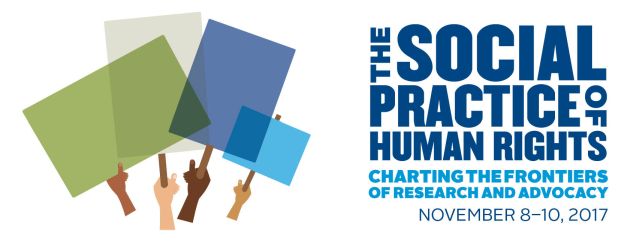
Start Date
11-8-2017 3:30 PM
Keywords
Trump, deportation, immigrants, refugees, ICE
Abstract
The Trump administration’s executive orders and policy changes regarding refugee resettlement and stepped-up Immigration and Customs Enforcement (ICE) actions are likely to create serious human rights and humanitarian impacts. These include separation of children from their parents, denial of due process in immigration courts, lengthy incarceration in detention centers, denial or loss of employment, denial of visas to citizens of some predominantly Muslim countries, denial of entry to previously vetted refugees scheduled for resettlement, and return (refoulment) of persons with well-founded fears of persecution or torture.
These actions will potentially impact key human rights areas and concerns, such as nondiscrimination, equality before the law, equal protection of the law, protection against arbitrary punishment, the right to asylum, and the special protections accorded to families. They involve the Universal Declaration of Human Rights, the Covenant on Civil and Political Rights, the Convention on the Elimination of All Forms of Racial Discrimination, and refugee and torture conventions protecting rights to asylum and protection from deportation when that is likely to result in persecution, torture, or death.
In this presentation, we will share the results of a study examining impacts of the administration’s actions on immigrant and refugee populations in the Dayton, Ohio, area. Impacts may include increased fear and stress and changes in daily routines; detention or deportation; family separation; economic hardships; increased instances of discrimination and harassment; difficulty accessing institutional services; and restrictions on mobility or visits from family.
The research involves interviews with leaders of local immigrant and refugee communities and focus groups conducted with members of these communities during spring, summer, and early fall 2017. Staff of human service agencies who work with these communities will also be interviewed to examine the role of local institutions as intermediaries. The research team includes faculty and undergraduate students from the University of Dayton.
Included in
Impacts of the Trump Administration’s Policies on Immigrants and Refugees in Dayton
The Trump administration’s executive orders and policy changes regarding refugee resettlement and stepped-up Immigration and Customs Enforcement (ICE) actions are likely to create serious human rights and humanitarian impacts. These include separation of children from their parents, denial of due process in immigration courts, lengthy incarceration in detention centers, denial or loss of employment, denial of visas to citizens of some predominantly Muslim countries, denial of entry to previously vetted refugees scheduled for resettlement, and return (refoulment) of persons with well-founded fears of persecution or torture.
These actions will potentially impact key human rights areas and concerns, such as nondiscrimination, equality before the law, equal protection of the law, protection against arbitrary punishment, the right to asylum, and the special protections accorded to families. They involve the Universal Declaration of Human Rights, the Covenant on Civil and Political Rights, the Convention on the Elimination of All Forms of Racial Discrimination, and refugee and torture conventions protecting rights to asylum and protection from deportation when that is likely to result in persecution, torture, or death.
In this presentation, we will share the results of a study examining impacts of the administration’s actions on immigrant and refugee populations in the Dayton, Ohio, area. Impacts may include increased fear and stress and changes in daily routines; detention or deportation; family separation; economic hardships; increased instances of discrimination and harassment; difficulty accessing institutional services; and restrictions on mobility or visits from family.
The research involves interviews with leaders of local immigrant and refugee communities and focus groups conducted with members of these communities during spring, summer, and early fall 2017. Staff of human service agencies who work with these communities will also be interviewed to examine the role of local institutions as intermediaries. The research team includes faculty and undergraduate students from the University of Dayton.



Comments
Note: There will likely be several University of Dayton students as presenters as well. Three student research assistants have done the interviews and coordinated the focus groups.